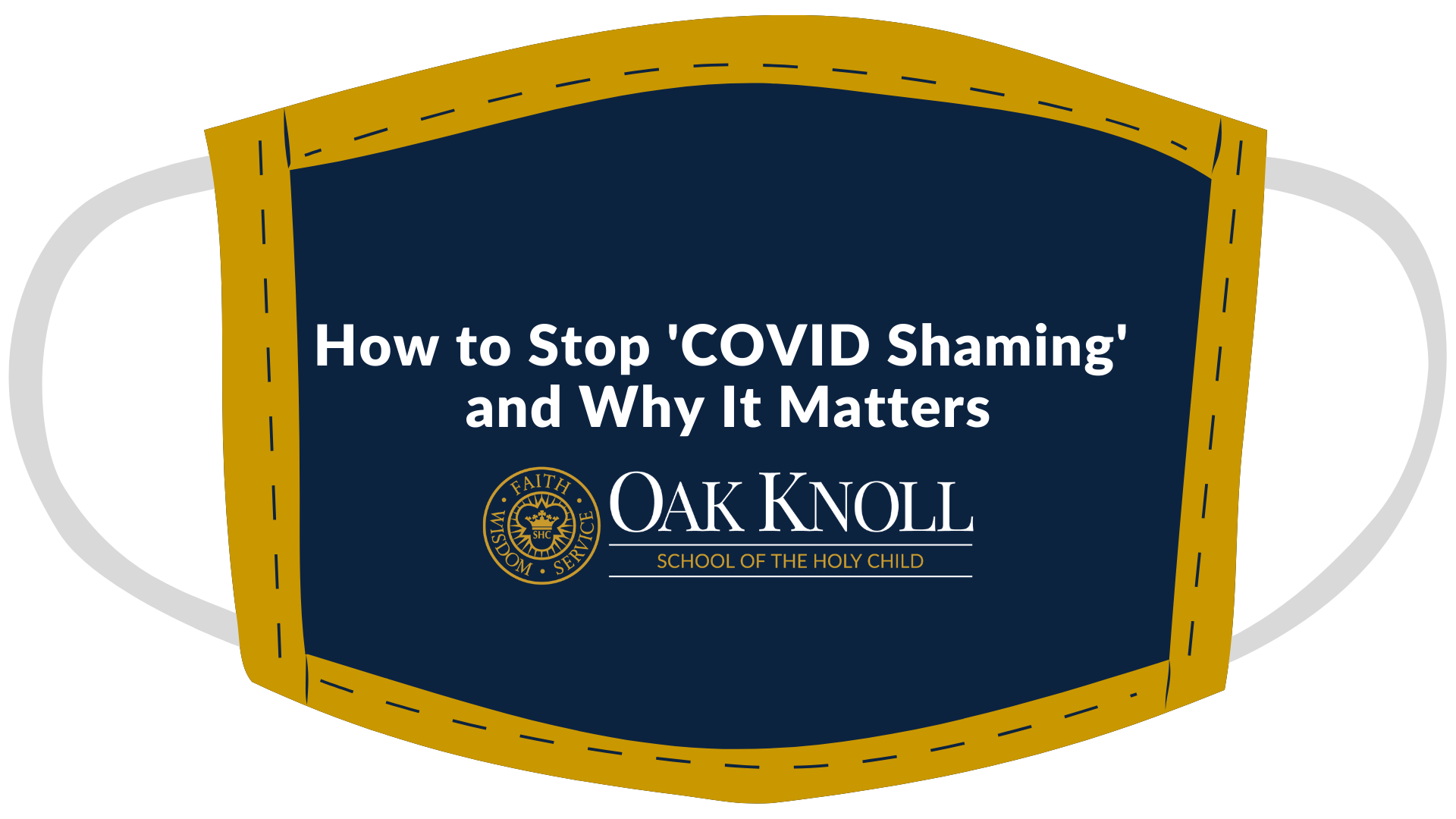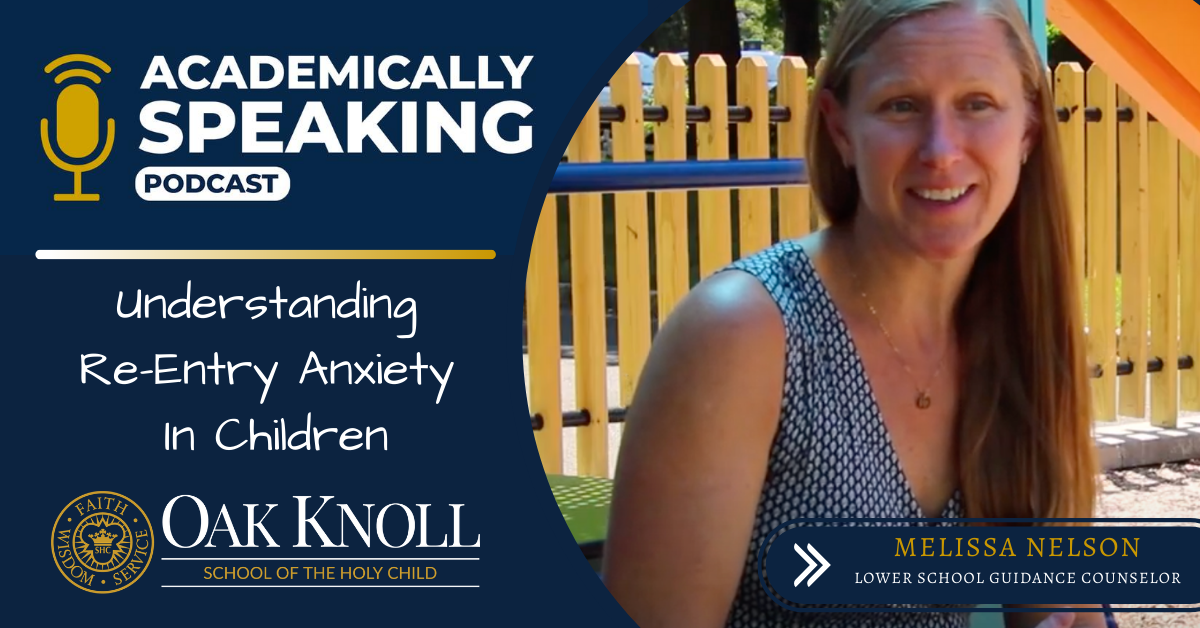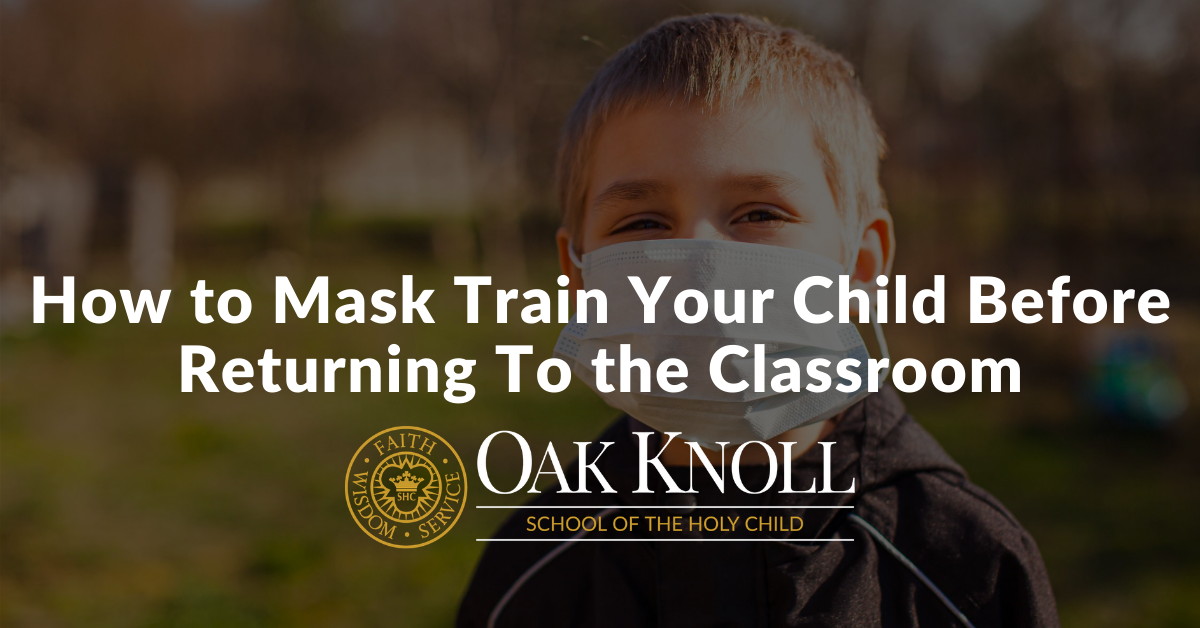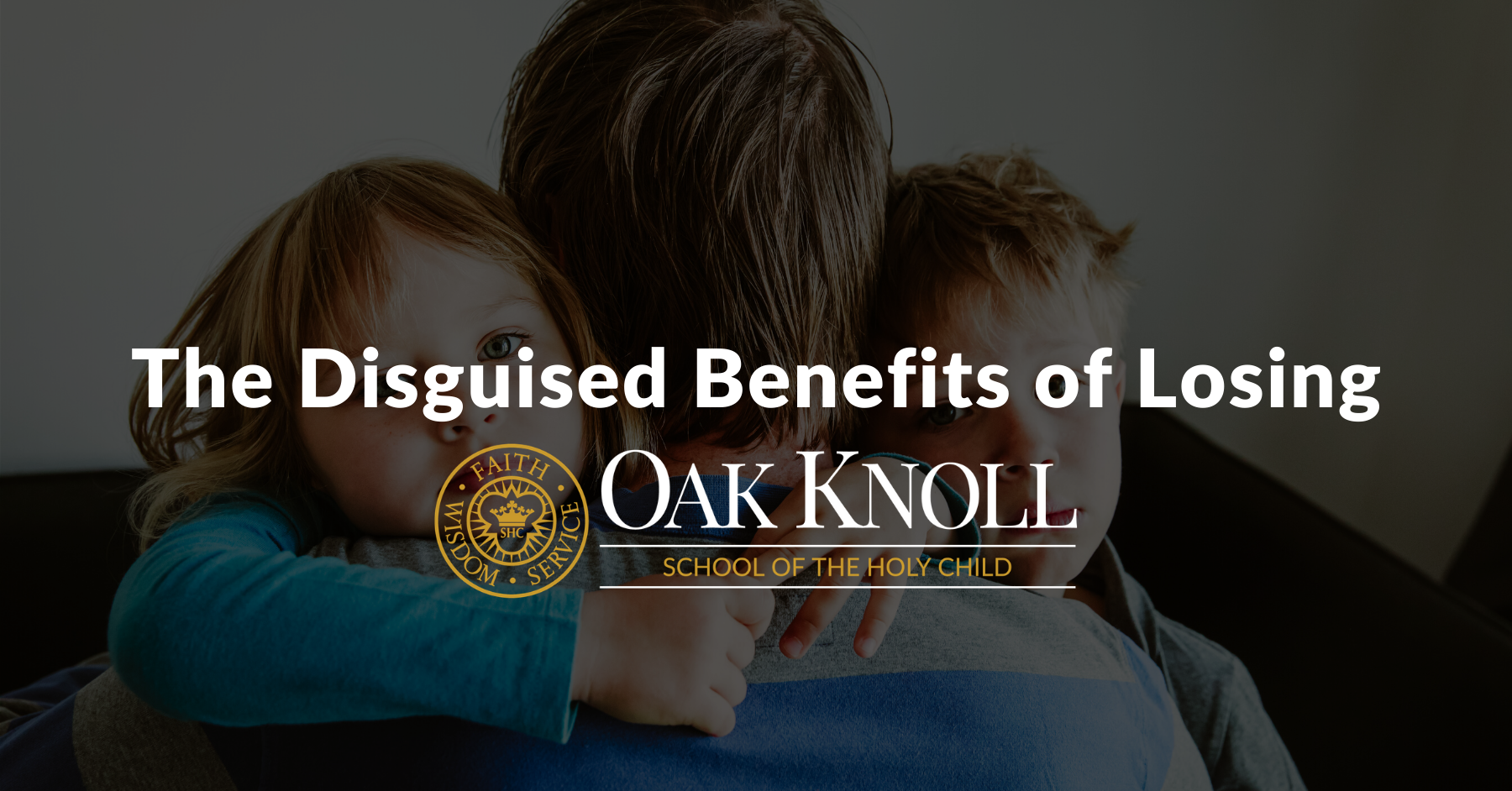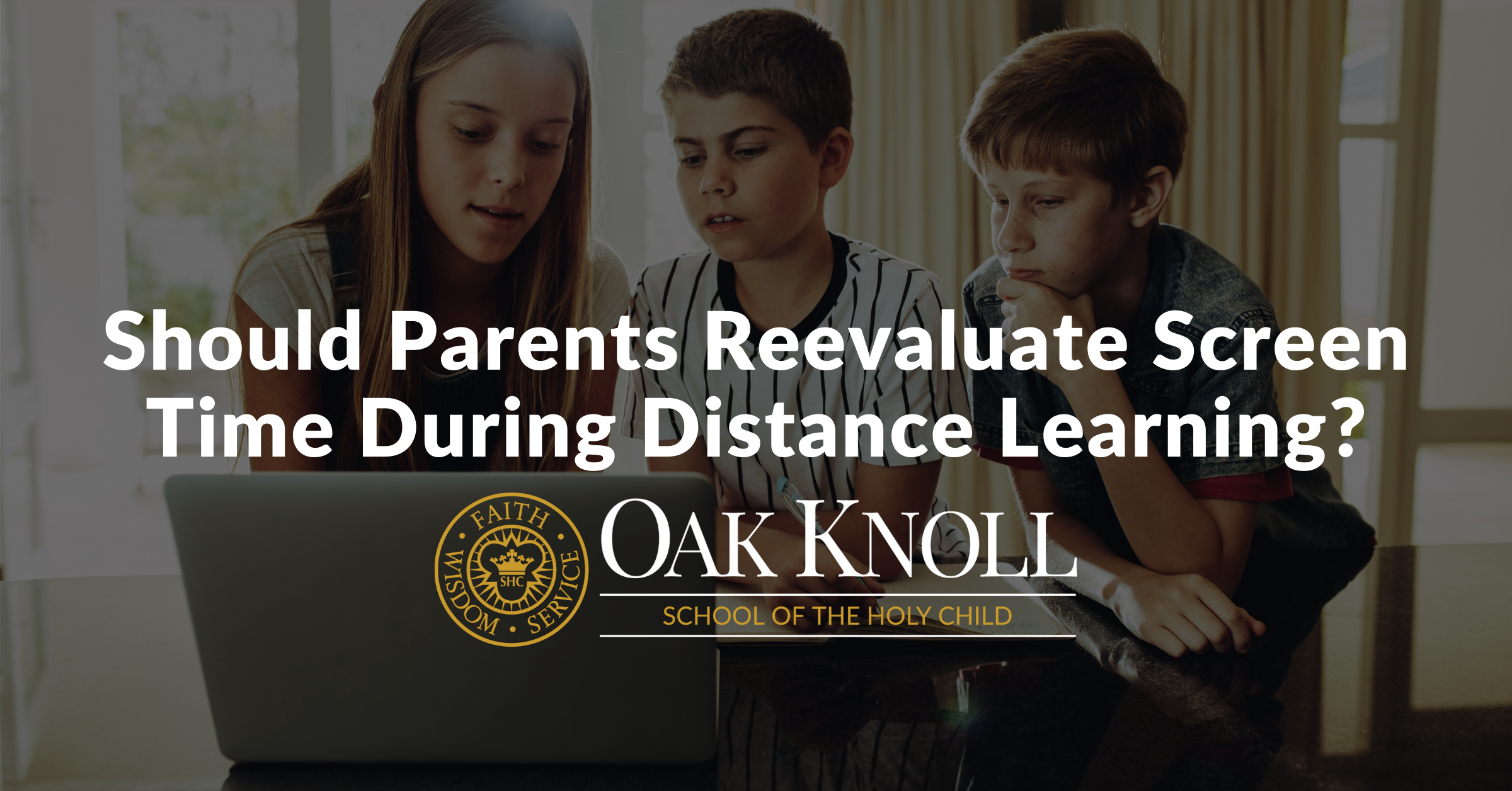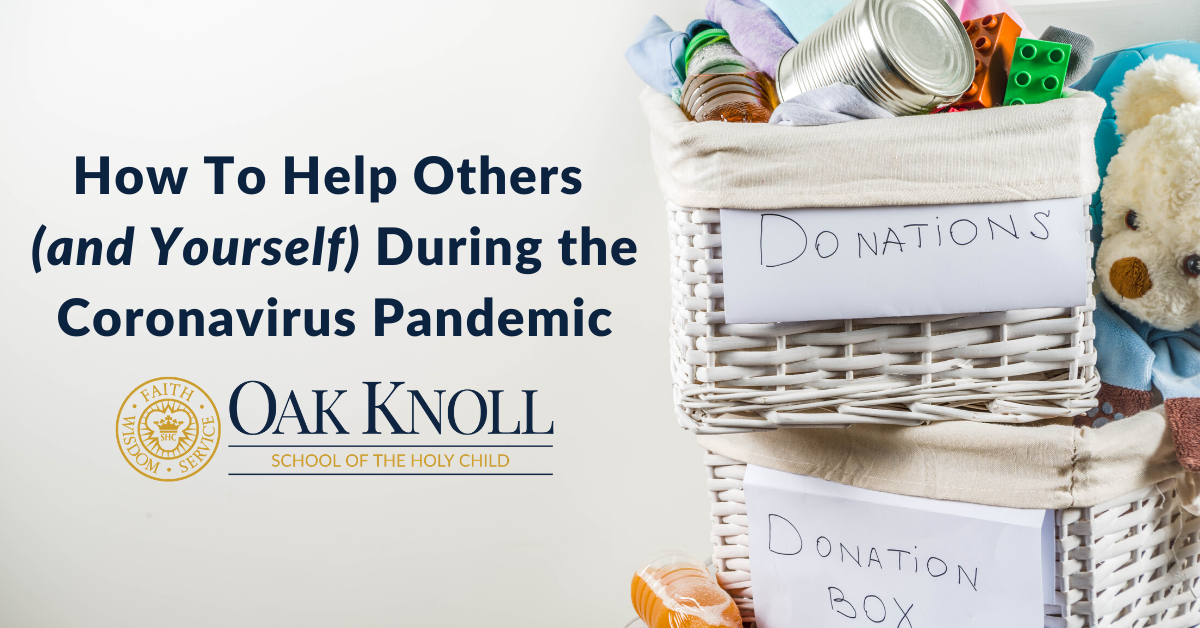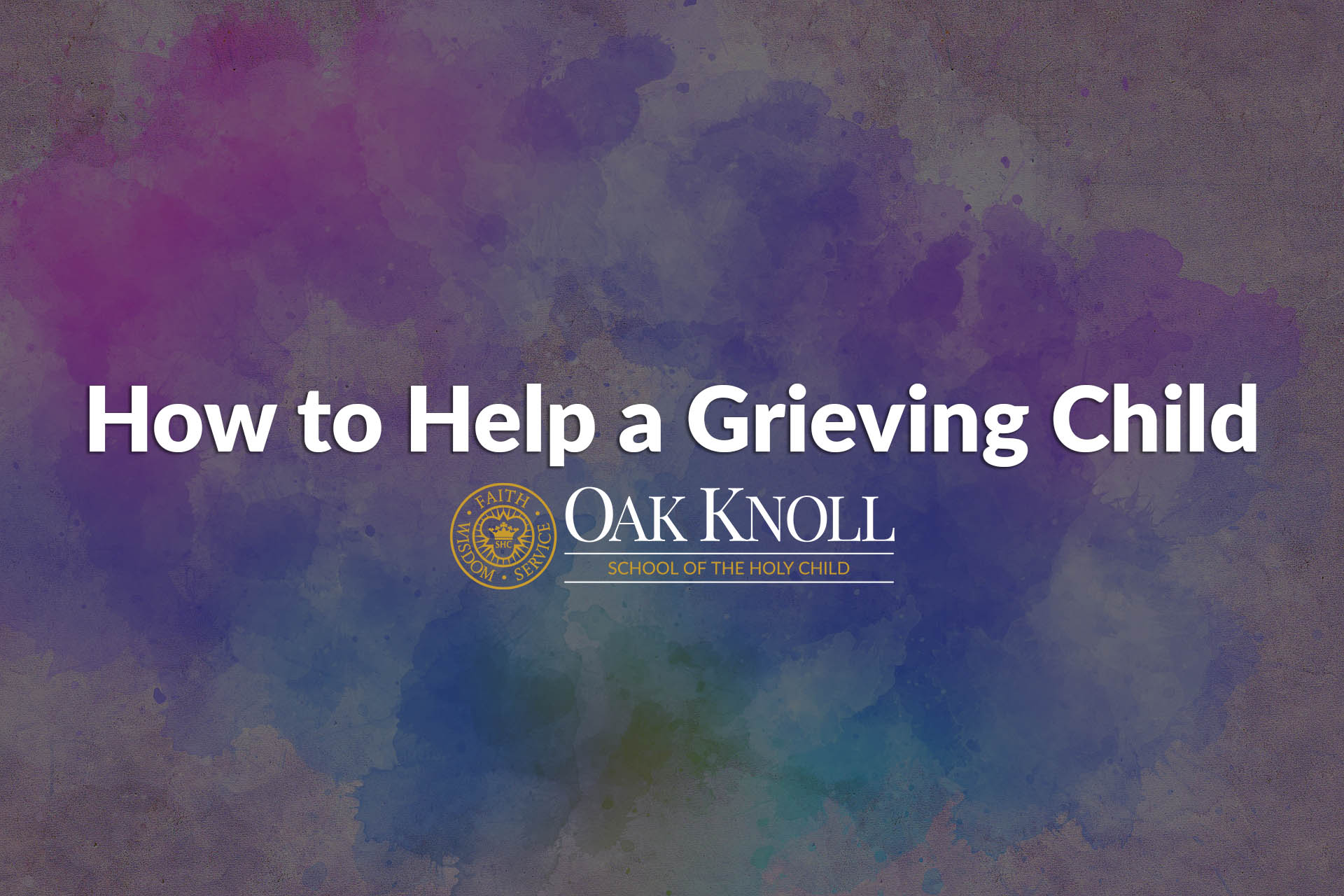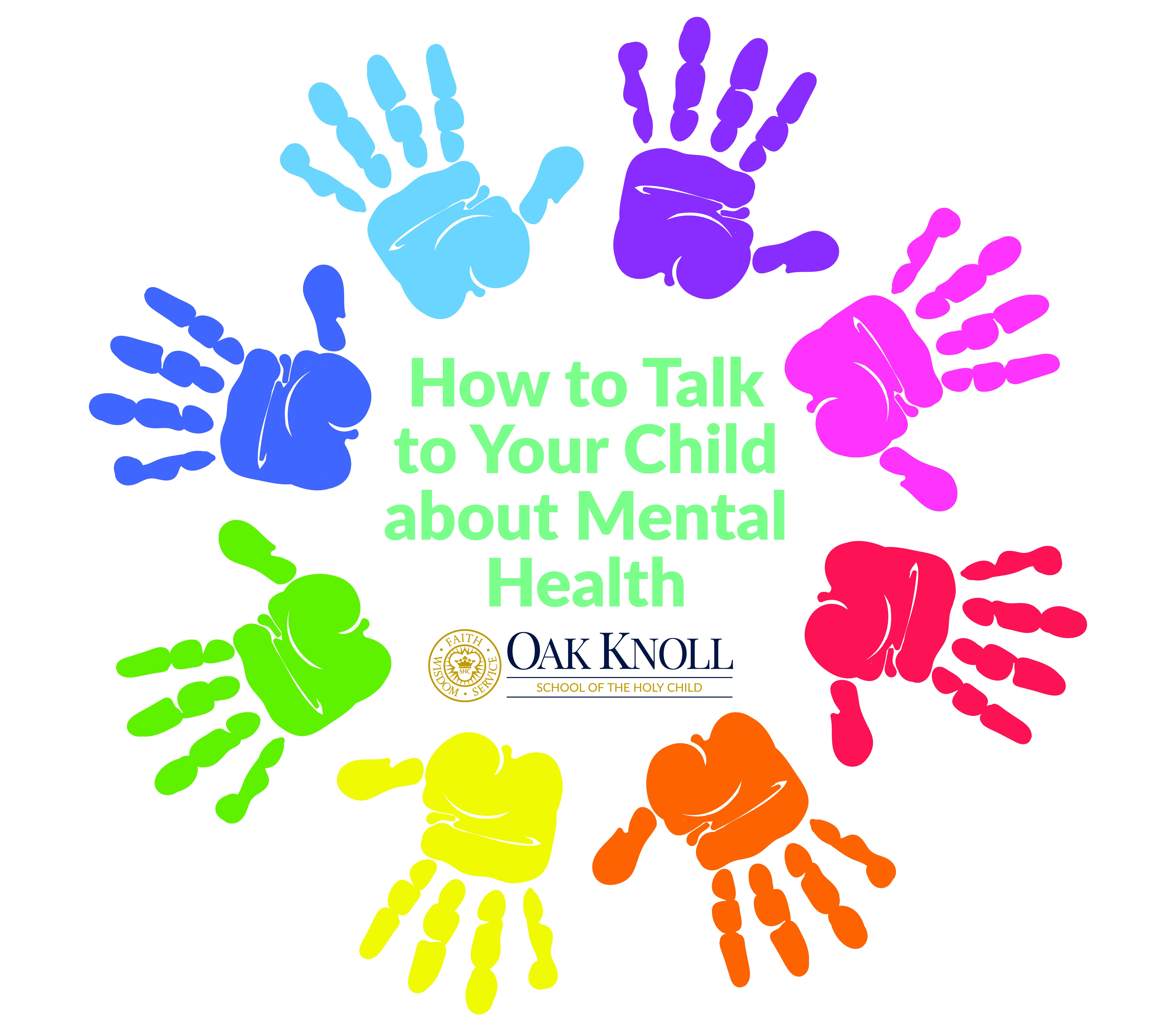While social distancing, wearing masks and avoiding gatherings weakens the spread of COVID-19, something else is growing stronger among communities at an alarming rate.
COVID shaming – or the act of publicly embarrassing someone who either has COVID-19 or is quarantining as a precautionary measure while they wait for test results after possible exposure – is real and now weaving its way through the gossip circles in neighborhoods and on school campuses. It is especially on the rise on social media.
While many schools in our state and throughout the country are seeing upticks of COVID-19 cases heading into the winter months, it is important to remind ourselves about keeping the shame at bay.
Here are some helpful tips:
Read More
Topics:
parenting,
student advice,
social and emotional learning,
mental health,
COVID-19
In our brand new podcast, Academically Speaking, Laura Perillo — Oak Knoll's Marketing Content Strategist in the Office of Marketing and Communications — sat down with new Lower School Guidance Counselor Melissa Nelson on re-entry anxiety in children as they return to campus this fall under COVID-19 restrictions.
Read More
Topics:
elementary school,
parenting,
separation anxiety,
tips,
mental health,
Coronavirus,
COVID-19
The COVID-19 pandemic has introduced countless changes since March. Absent of a vaccine, and with the start of the school year just weeks away, parents everywhere are wrestling with the fact that the return to the classroom is going to look very different this fall.
Read More
Topics:
education,
students,
student advice,
social and emotional learning,
mental health,
Coronavirus,
COVID-19
Whether it be in the classroom, on the field or at home, everyone is most likely familiar with the “winning isn’t everything” phrase. If winning isn’t everything, however, how do most people generally feel about losing?
Read More
Topics:
parenting,
student advice,
wellness,
mental health
Before the global coronavirus pandemic came into play earlier this year, parents everywhere were guided by experts to set limits on their child’s screen time each day. However, in a rare twist of fate, COVID-19 stay-at-home orders meant that children and parents were left scrambling with no choice but to rely on virtual technology even more to attend work and school from home every day.
Read More
Topics:
technology,
mental health,
Coronavirus,
family
The spread of the novel COVID-19 has forced more closures and stay-at-home orders than we have seen in our lifetime. Most of the news this month quickly inundated us with frightening stories and seeing the light at the end of the tunnel is, for many, difficult.
Read More
Topics:
community service,
parenting,
mental health,
Coronavirus
With all of the news and social media coverage of the COVID-19 pandemic, children may be confused and frightened by what they see and hear. Imaginations run wild on the playground and parents may feel that the topic should remain off-limits to avoid sparking fear in their child more than necessary. But according to The Child Mind Institute, children are actually more fearful when they are kept in the dark.
Read More
Topics:
high school,
elementary school,
parenting,
middle school,
health,
tips,
mental health
As parents and educators, our focus is to protect children, to shield them from distress and to create environments that foster their growth and development. While we usually manage to navigate the day-to-day situations and stressors that children face without too much difficulty, we are often at loss when faced with having to talk to children about death. How much do we tell them? Will they be able to understand? Will they get too upset? What if they show no emotion? When do we seek outside support?
Read More
Topics:
parenting,
student advice,
wellness,
social and emotional learning,
building confidence,
mental health
As parents and educators, we seek to put our teen’s behaviors, emotions and difficulties into mutually exclusive categories that we can readily understand and, by extension, start the processing of fixing. This assuages our own anxieties about being ineffective in our children’s lives and, replaces that inner parental angst with controllable variables in the form of actionable items and measurable gains. If your teen comes home expressing that nothing in math class is making sense, parents may act in the straightforward response of contacting the teacher or enlisting the help of a tutor, should one not already exist. This is an “easy one” as parenting goes, in that the direction is clear and there is a reasonable expectation that this intervention will fix or at least mitigate the problem.
Read More
Topics:
high school,
elementary school,
parenting,
middle school,
wellness,
building confidence,
mental health



